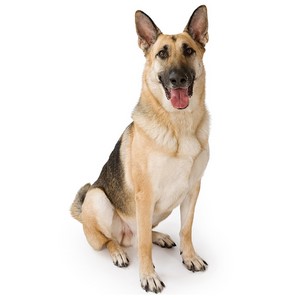German Shepherd Lifespan
Owning a German Shepherd Dog and wondering what is the average age for German Shepherd to die?
According to Australian breed survey, an average lifespan of German Shepherd Dog is 10-13 years with some living 3 years more that what is expected.
How Long Can a German Shepherd Live?
-
If you own or thinking to have a German Shepherd, understanding the German Shepherd Dog life span is important when looking after for these dog breeds.
"How long do German Shepherd Dogs live" is one of the hardest question, many pet owners ask themselves.
We all know that these German Shepherd Dogs cannot live with us forever, so it is important that we understand the perils of old age and their average life expectancy of German Shepherd.
There are many factors that determine the lifespan of German Shepherd Dog, including size, breed, and the general health of your dog.
These factors can help answer the questions on most German Shepherd pet owner’s minds.
How Long Do Dog's Live For?
Lifespans for certain medium dog breeds: Australian Shepherd (12-15 years), Chinese Shar-Pei (12-14 years), Cocker Spaniel (13-15 years), Poodle (12-15 years), Whippet (12-15 years), Puli (10-15 years), Welsh Springer Spaniel (13-15 years), Bulldog (10-12 years), Boxer (10-12 years), Chow Chow (11-13 years), Curly-Coated Retriever (11-13 years) and French Bulldog (11-13 years).
Lifespans for certain large dog breeds: Great Dane (8-10 years), Bernese Mountain Dog (7-10 years), Irish Wolfhound (8-10 years), Newfoundland (10-12 years), Giant Schnauzer (10-12 years), Dogue de Bordeaux (9-11 years), Rottweiler (10-12 years), St. Bernard (10-12 years), Scottish Deerhound (10-12 years), Flat-Coated Retriever (10-12 years), Akita (11-15 years), Anatolian Shepherd (11-13 years), Irish Setter (12-14 years) and Belgian Malinois (14-16 years).
What to do if you lose your German Shepherd
If your German Shepherd Dog or any other pet has gone missing and it does not have an identification tag with a phone number, you can:
1. Report your missing pet details at Pet Reunite website here.
2. Register the missing pet on the Local Facebook Lost Pets Groups Here.
3. Contact the nearby vet clinics to see if someone has handed in your lost pet.
4. Phone the RSPCA or Visit the RSPCA Lost Pets website and complete a Lost Pet Report.
5. Visit Lost Pets Pages of Animal Pounds.
What to do if you find a lost German Shepherd
If you find a German Shepherd Dog or any other pet and it does not have an identification tag with a phone number, you can:
1. Register the found pet details at Pet Reunite website here.
2. List the missing pet on the Local Facebook Lost Pets Groups.
3. Call the Local Authority to collect the lost animal.
4. Take the animal to the local Animal Shelter near to your suburb.
5. Take the pet to the local Vet Clinic who normally scan the animal’s microchip and contact the registered owner of the pet.
Laws Regarding Missing Pets
1. It is against the law to keep any animal that you find.
2. Pets are generally considered property and it is illegal to take and keep someone else’s property.
3. You must call your local animal control unit and file a FOUND AN ANIMAL report for any dog or cat you find.
4. To reclaim your lost dog, cat or other pet from the animal shelter you must pay a release fee.
5. If your dog or cat is unregistered, you will have to register your pet before you can take it home.

